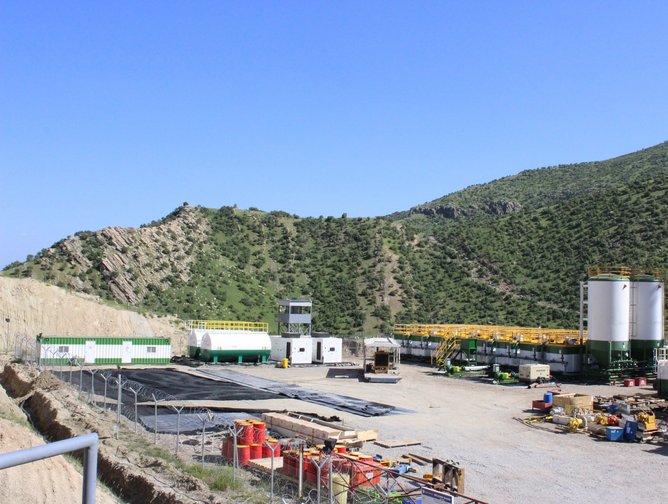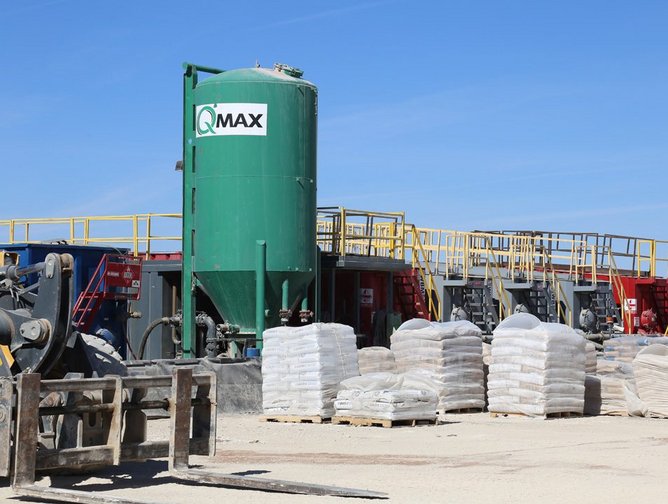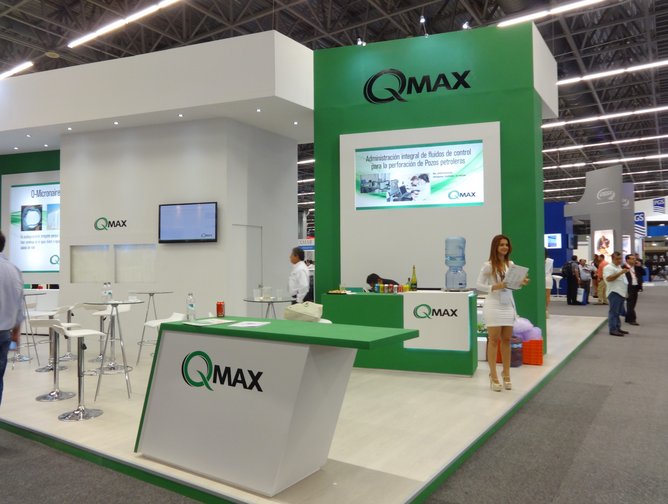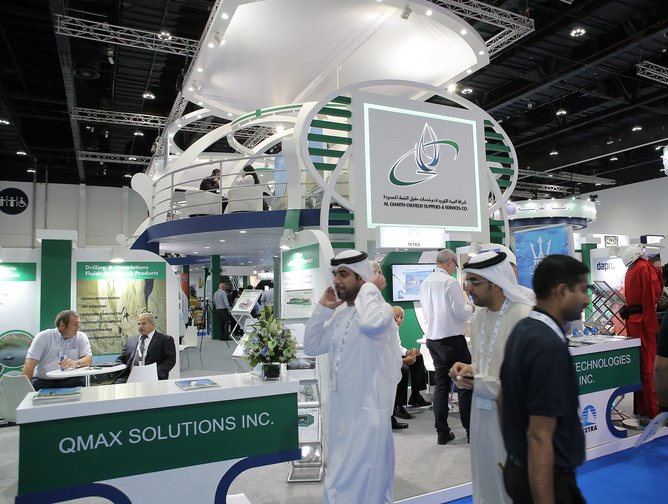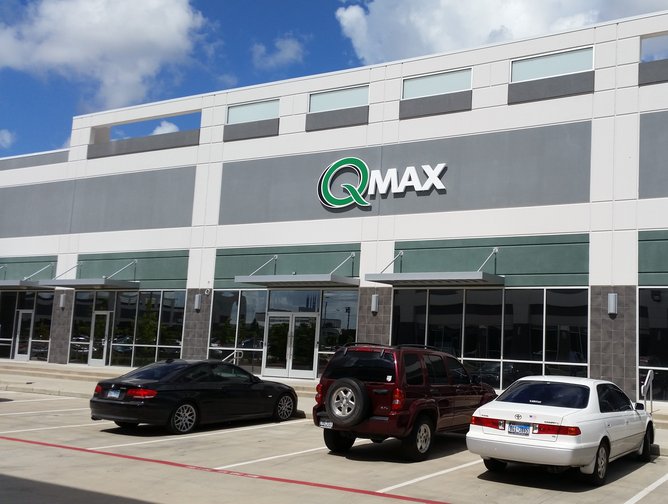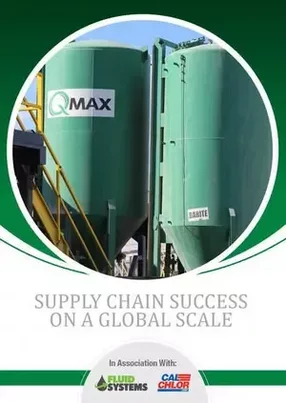QMax: Centralising supply chain to deliver global success for drilling fluids customers
As a company that promises to deliver with no excuses, the role of supply chain is crucial for QMax in staying true to its word.
But that is what it proudly promises, and in 2015 the company brought in the talented Veronica Brown to oversee the development and continued growth of a market leading supply chain function.
With over two decades of global supply chain experience in the oil and gas industry in roles with both Halliburton and BP, Brown brings significant experience of working with international customers in her current role as Vice President of Supply Chain at QMax.
“I have been on both sides of the table when it comes to oil and gas,” says Brown. “I have worked as the operator and as the buyer. So, I understand how things work with regards to buying the products. We need to provide the services, but also how these services are then used by the operator, understanding their pain points, and what they are truly looking for in their product.”
The supply chain function is undergoing a significant transformation in industries all over the world. No longer seen as a separate business function, supply chain is now recognised as a key driver of growth and, in some cases, guiding the strategic direction of a company.
This is no different for QMax. Throughout her career, Brown has seen this evolution happen first hand.
“This is something where I think QMax is a perfect example. I sit in planning meetings surrounding the future of the company, where we want it to go, what we want it to be, and supply chain is right there in those discussions,” she says.
“It is very clear from the CEO to the VPs of Operations and Technology that they need to work closely with supply chain. It has been refreshing, to say the least. Supply chain is part of the discussion from the beginning, and it really enables true collaboration which, in turn, drives the company forward.”
As a global supplier of solutions for drilling needs, waste management, transportation, technical testing and analysis services, QMax has always had a logistics arm, but through Brown it has its very first Vice President of Supply Chain.
Following the acquisition of QMax by Palladium Equity Partners, LLC in 2014, the new CEO recognised an issue across the company, one that saw a siloed way of working between supply chain and logistics.
This is where Brown came into play.
“There was a logistics department, a very siloed one, and there was a representative in every one of our locations. The problem was they never communicated with one another,” says Brown.
“So, the decision was made to create a global supply chain organisation and this is when my role was created. One of the changes we implemented was to centralise our supply chain operation. So, when our operations in Mexico, Colombia, the Middle East, etc. need to order products from the US, they contact our central supply chain team and we buy the product and ship it to them.”
QMax has also implemented a Supply Chain Manager role within each country it operates. These managers communicate their local needs directly with Brown who, working with the global team, leverage their global volumes across the organisation.
One example is a discount that was negotiated with a US supplier. Now that QMax buys directly with this supplier in the US and ships to other countries, the whole organization reaps the benefits of the discount.
This is an example of how Brown, through her role, has an almost real-time view and understanding and of what is happening across the organisation, working with the CEO, operations, and technology to leverage cost savings and enable efficiencies.
In three short years QMax and Brown have come a long way, but no supply chain journey ever truly ends. As noted above, supply chain is a continuously evolving space and so Brown understands that the company must not rest on its laurels and continue adapt to this changing landscape.
“Right now, as an organisation we are implementing an ERP system that will provide us with greater visibility not only of what we are buying, but also the contract negotiations surrounding that purchase,” she says. “We are negotiating a number of different agreements in different countries, and currently there is no visibility to see what exactly these countries are buying, unless I ask for that information.
“Having an ERP system in place will provide us with that visibility, but it will also enable us to have a better understanding of our performance and generate better, more valuable KPIs as an organisation.”
See also:
- Pemex, technology and the 2017-2021 Business Plan: An interview with CIO Rodrigo Becerra Mizuno
- SEWA’s 2020 Vision: Moving Sharjah towards a successful, innovative and sustainable tomorrow
- SAP Ariba continues to provide procurement proficiency amid a backdrop of transformation
An ERP system is but one of the many ways that technology is redefining the supply chain process, and while QMax currently runs most of this data capture through manual processes, technology will open the door to a more efficient and agile function.
“Technology, starting with the ERP system, will enable us to improve our planning and demand planning for a product,” says Brown. “Once that is in place, we can add to that, such as transportation management systems. It will make the supply chain work better. I can have less inventory and be more efficient with planning and giving forecasts to my suppliers.”
With any transformation, particularly one that has been, and will continue to be, defined by technology and changing of process, challenge is inescapable. Brown recognises as much. In building the very foundations of a supply chain network to be more efficient and centralised, Brown knew that the first component required to enable change was the people.
“Changing the mindset of people, be it operations or sales, and making them understand that supply chain is not a roadblock, but rather enablers for their jobs. That was a challenge at first,” says Brown.
“As we work closer together, they can see the benefit much better than before. They understand that just because we are not out in the field with the technologies or products in action, it does not mean we cannot come up with innovative ideas and solutions to help them address their pain points.”
As a means of reinforcing this message, Brown promotes a culture of collaboration. She insists that everyone on her team meet regularly with their internal customers in operations across the different regions to understand their needs and listen to them.
In creating an open dialogue across the entire organisation, Brown and her team are better prepared to help those who need it.
This open dialogue extends further, as Brown has redefined the negotiations process through the creation of mixed negotiation teams.
“It is not just supply chain going to negotiate with the supplier. We engage technology, operations, sales, and finance,” she says. “Together we developed a negotiation strategy centred around how we can go out and work with the suppliers, understand exactly what is required, and how we can tailor and shape our negotiations to generate the best possible deal for both parties. For me, that has been a huge milestone for the company.”
As QMax continues to grow and expand its supply chain network, Brown points to the implementation of the ERP system as the next big doorway to opportunity, as it will pull together the various elements of the supply chain into one centralised system, enabling visibility that will prove key in achieving future success.
“My goal for QMax is to grow the organisation in a way that we can manage all the categories of spend, including the indirect spend categories such as IT, and manage our total spend much better,” she says.
“Because they are important. Of course, we want to continue to ensure that we are getting the best product or the best service, but for me it is the centralisation that will drive us into the future.”
